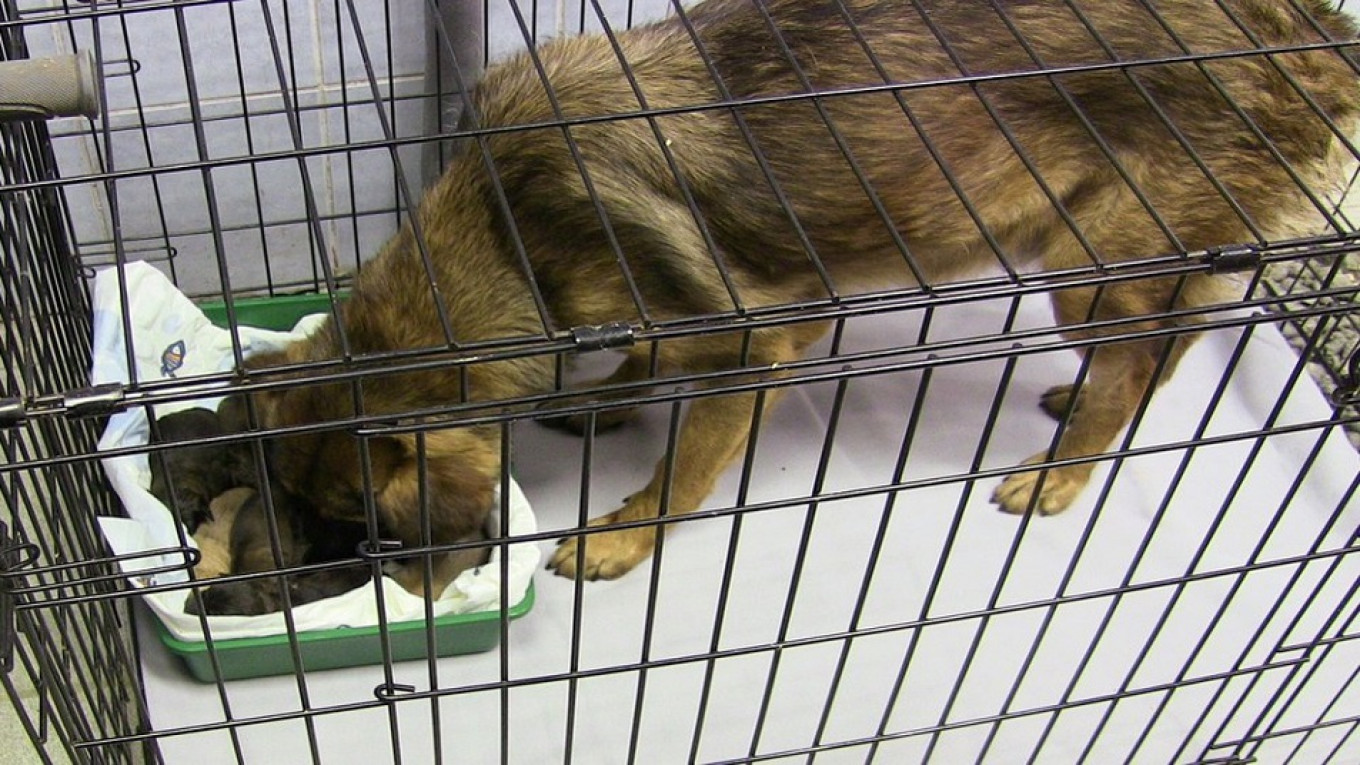Russia has banned petting zoos, animal cafes and the killing of stray dogs and cats under a new law submitted eight years ago that dramatically overhauls rules overseeing the treatment of domestic and wild animals.
Stray dogs roam the streets of many Russian cities and towns, and attacks by — and against — the animals have become increasingly frequent. Animal rights activists have called for humane control measures of stray dogs, as vigilantes around the country have shot or administered poison to kill the animals.
The Kremlin says the new animal-cruelty law is guided by the “principles of humanity” and human safety when handling animals.
The new law — welcomed tepidly by animal welfare activists — bans animal fights, pet cafes and petting zoos that house exotic animals, often inside malls. Bars and restaurants are also banned from housing animals, while wild animals cannot be kept in apartments and private houses.
“This law covers only one percent of what we’d like to see,” Irina Novozhilova, head of the animal rights group Vita, told the RBC broadcaster.
Additionally, the law imposes strict regulations on pet ownership, including walking dogs in designated areas and fining owners for failing to pick up after them. Owners are required to muzzle and put a leash on potentially dangerous breeds, a category that the state will define at a later time.
Senator Andrei Klishas criticized the law in general and the dog-walking provision in particular as “legal chaos.”
“After the New Year, people will go out on the street with their dogs and become outlaws,” he was quoted as saying by the Kommersant newspaper.
The law prohibits the killing of stray animals, requiring them to be captured — out of sight of children and recorded on cameras for public access — and placed in shelters instead.
So-called “public inspectors” will be in charge of recording violations and sending them to government oversight authorities.
Putin signed the bans into law late last week after they passed both chambers of Russian parliament. The bill was submitted to the State Duma in 2010, including by the current Culture Minister Vladimir Medinsky.
A Message from The Moscow Times:
Dear readers,
We are facing unprecedented challenges. Russia's Prosecutor General's Office has designated The Moscow Times as an "undesirable" organization, criminalizing our work and putting our staff at risk of prosecution. This follows our earlier unjust labeling as a "foreign agent."
These actions are direct attempts to silence independent journalism in Russia. The authorities claim our work "discredits the decisions of the Russian leadership." We see things differently: we strive to provide accurate, unbiased reporting on Russia.
We, the journalists of The Moscow Times, refuse to be silenced. But to continue our work, we need your help.
Your support, no matter how small, makes a world of difference. If you can, please support us monthly starting from just $2. It's quick to set up, and every contribution makes a significant impact.
By supporting The Moscow Times, you're defending open, independent journalism in the face of repression. Thank you for standing with us.
Remind me later.






